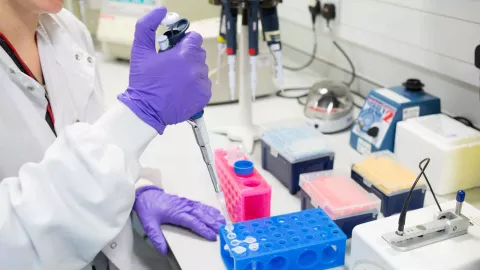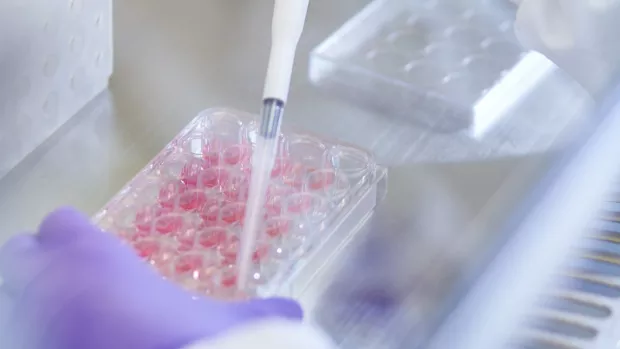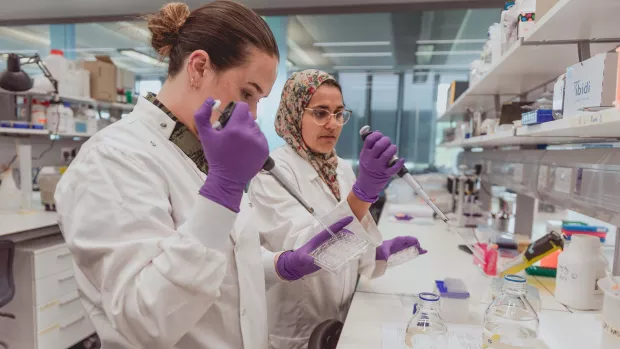
£1.2 million into global research on why MS progresses
19 new research projects are being funded – including three in the UK – by the International Progressive MS Alliance. All over the world, these scientists are working to get us closer to stopping MS.
The International Progressive MS Alliance is awarding 19 projects around the world up to £65,000 each. The aim is to better understand why MS progresses. Ultimately, this knowledge will help us develop treatments for progressive MS.
Calming over-excited nerves
Professor David Baker, from Queen Mary University of London, will explore how to protect nerve cells from becoming dangerously over-excited. If nerves become over-excited, it can lead to nerve cell death, which plays a big part in MS progression.
Professor Baker explains: “We’ve developed a chemical that we believe can help calm over-excited cells and protect them from exhaustion. Based on a chemical our bodies make naturally, it can enhance a gate-like mechanism, which allows certain charged particles to exit the nerve cells. This prevents the build-up of excitability which can be dangerous and lead to nerve cell death”.
If this chemical can protect nerve cells without causing side effects, David thinks this could be a game changer for MS treatment.
Enhancing natural protective responses
Dr Don Mahad, from Edinburgh University, previously uncovered that the diabetes drug pioglitazone could protect nerves from damage. So far, they’ve shown this in mice, but this funding means the team can now move the research into human tissue.
Dr Mahad said: “Last year we found that our nerves have a natural protective response when myelin, the coating that protects them, gets damaged in MS. And in animal studies we were able to enhance that response with a drug that’s already available [pioglitazone].
“We’re now able to take our findings forward to see if what we’ve found in mice is also true in brain tissue from people with MS. We also want to find out if nerve cells have other natural protective responses, and how we might help these processes along.”
Targeting oxygen shortage
At University College London, Professor Ken Smith will explore exactly when the fatal injury that leads to nerve cell death in progressive MS actually happens. His project will ask whether intervening to prevent the inflamed nervous system from getting too little oxygen could affect the level of impairment experienced as a result.
Together we can make a difference
Caroline Sincock has lived with MS since 1990 and is a member of the Alliance Scientific Steering Committee.
Caroline said: “I joined the Alliance because it brings together world-class expertise in a way that is completely unprecedented. MS organisations and researchers from around the world have come together to finally stop this condition, and the combined knowledge and reach is just extraordinary.”
Dr Clare Walton, Head of Research at the MS Society, said: “More than 130,000 people in the UK and 2.8 million worldwide live with MS. Thanks to research, we already have over a dozen licensed treatments for people with the relapsing form of MS, and some emerging for early active progressive MS. But too many people still don’t have any treatment to help them.
“We believe we can stop MS. And by finding out what drives MS progression, these projects will bring us one step closer to finding treatments for everyone.”



